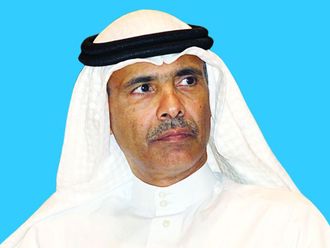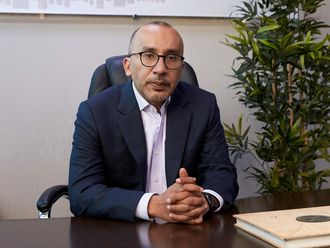
The recovery of the MENA region holds huge promise despite global uncertainty. As private sector investment comes back, we should see more jobs created, more people who need help getting access to support, and education systems evolving faster to enable tens of millions of young people to find pathways to success.
The recovery of the region will not happen on its own—it requires a comprehensive effort from governments, the private sector and civil society. The public and private sector efforts on philanthropy can be widely reported, but the efforts of regional philanthropists are not as obvious.
Last month the GCC’s report on strategic philanthropy was launched, estimating giving to be worth $210 billion annually. Philanthropy researchers and professionals came together to discuss and share trends in GCC giving among themselves.
It’s not charity
Family businesses are driving strategic and institutionalized philanthropy in the Gulf, highlighted the report, with GCC philanthropists embracing collaboration with government to leverage policies for greater impact - and that the distinction from charity is coming into focus for many. Perhaps the most significant take-away is the fact that transformational giving advances public policy objectives, supported by evidence-based giving and impact measurement practices adopted by leading philanthropies.
Understanding this trend in strategic philanthropy in the region is critical as we collectively address the challenges faced. The World Bank economists forecast the MENA region’s growth will be 3.5 per cent next year, and growth in real GDP per capita will be 2 per cent next year, with growth predicted to be higher in GCC than the rest of the region.
Biggest impact on education access
It is increasingly clear there are growing opportunities to leverage strategic philanthropy and the entrepreneurial ecosystem in the Gulf to drive meaningful impact and address the region's biggest challenges. It not only advances public policy objectives, but promotes access to quality education, fosters social cohesion and improves quality of life with economic opportunities.
Digitalizing economies can lead to a potential increase in the region's GDP by 46 per cent. For these kinds of gains, countries in the MENA region must overcome challenges of the digital paradox. They must equally utilize digital technologies for economic purposes with the same level of high adoption as for social media purposes.
To achieve this, we must reduce the digital divide, introduce better regulatory and economic policies, launch initiatives to boost economic connectivity and ensure universal access to reliable internet.
From education to upskilling
To support the transformation to the Fourth Industrial Revolution, the region will require better access to education that is relevant for today, and well-equipped with technologies needed to accelerate workforce digitization. The future of work will demand higher technical and transferable skills. As we look ahead, it is necessary to prepare our young people for a career and continuous lifelong learning.
The degree of change needed requires the input of all stakeholders - from governments to businesses, and civil society organizations who all have an important role driving meaningful impact. The role of strategic philanthropy in this region is to help drive this kind of transformative change. There are ample opportunities for the next generation of GCC philanthropists to work collaboratively and be strong partners in driving transformative change.
Strategic philanthropy efforts can be highlighted all across the region. For example, Egypt's Sawiris Foundation for Social Development has been working to build local communities and alleviate poverty through education and healthcare support. Saudi Arabia's Community Jameel is working to empower youth and expand access to technology through grants and scholarships for entrepreneurs.
Finally, the Abdulla Al Ghurair Foundation has been contributing to building education and upskilling opportunities for better livelihoods.
Efforts to date are still making great progress, but there is still a great deal of work to be done. As we continue to grapple with challenges facing the region, it is clear that strategic philanthropy can play a critical role in advancing public policy objectives and driving meaningful impact.
This cannot be achieved alone. Collaborations, partnerships, and bold investments in crucial areas like education and innovation can enable us to accelerate progress towards a more equitable and sustainable future for all.
Dr. Sonia Ben Jaafar
The writer is CEO of Abdulla Al Ghurair Foundation for Education.













